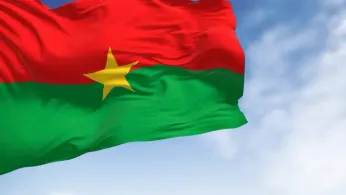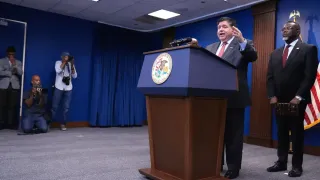
Sep 2
Burkina Faso Passes Law Criminalizing Homosexuality
READ TIME: 3 MIN.
On Monday, Burkina Faso’s transitional parliament, installed following two coups in 2022, unanimously passed legislation that criminalizes homosexuality for the first time in the country’s history. The new law imposes prison sentences of two to five years and financial penalties for those found guilty of same-sex relationships or “similar practices.” Justice Minister Edasso Rodrigue Bayala confirmed the law’s passage on national broadcaster RTB, stating that foreign nationals convicted under the statute will also face deportation .
The law is part of a broader reform of family and citizenship policies, which government officials say will be accompanied by a national “awareness campaign.” The legislation was approved by all 71 members of the transitional parliament, none of whom were elected by the public following the military’s seizure of power three years ago .
Burkina Faso’s move follows a trend among several African nations to tighten restrictions on same-sex relationships. In November 2024, neighboring Mali, also under military rule, enacted its own criminalization of homosexuality. Ghana and Uganda have similarly passed or strengthened anti-LGBTQ+ laws in recent years, despite widespread condemnation from international human rights groups .
Uganda’s 2023 legislation drew global attention for its harsh provisions, including the possibility of the death penalty for so-called “aggravated homosexuality” and life sentences for consensual same-sex relationships. Burkina Faso’s penalties fall short of these extremes but still represent a sharp departure from the country’s previous legal stance, where homosexuality was not explicitly outlawed prior to the recent coup-driven shifts in governance .
Advocates for LGBTQ+ rights have voiced deep concern over the new law’s implications for personal freedom, public health, and the safety of sexual minorities in Burkina Faso. Human rights organizations warn that criminalization leads to increased stigma, violence, and barriers to essential services such as healthcare and legal protection . In similar contexts, LGBTQ+ individuals have reported heightened risks of harassment, arrest, and assault, often with little recourse to justice.
Edasso Rodrigue Bayala, the Justice Minister, described the law as targeting “all the bizarre behaviour,” a phrase that has raised alarm among legal experts who caution that vaguely defined statutes can fuel arbitrary and discriminatory enforcement .
International LGBTQ+ organizations, including OutRight Action International and ILGA World, have condemned the move, urging Burkina Faso’s authorities to reconsider and highlighting the violation of international human rights conventions to which the country is a signatory .
The surge in anti-LGBTQ+ legislation across Africa is part of a broader pattern, with over 30 African countries now criminalizing same-sex relationships. Legal analysts note that such laws are often justified by their proponents as protecting family values or adhering to religious norms, but critics argue that they serve to deflect attention from political unrest and economic hardship .
The international community has responded with calls for respect for human rights and the repeal of discriminatory laws. The United Nations, the African Commission on Human and Peoples’ Rights, and numerous foreign governments have issued statements denouncing the criminalization of sexual orientation and calling for the protection of LGBTQ+ individuals .
Civil society organizations within Burkina Faso face increasing pressure, with many activists operating underground or seeking asylum abroad. While officials have announced plans to “popularize” the law through awareness campaigns, critics fear this will only intensify anti-LGBTQ+ sentiment and further marginalize an already vulnerable population .
As Burkina Faso implements its new law, the repercussions for LGBTQ+ people and their allies are expected to be profound, with both legal penalties and social ostracism likely to increase. Advocacy groups continue to call for solidarity and support from the global LGBTQ+ community, emphasizing the urgent need for legal reform, protection, and inclusive policy.






